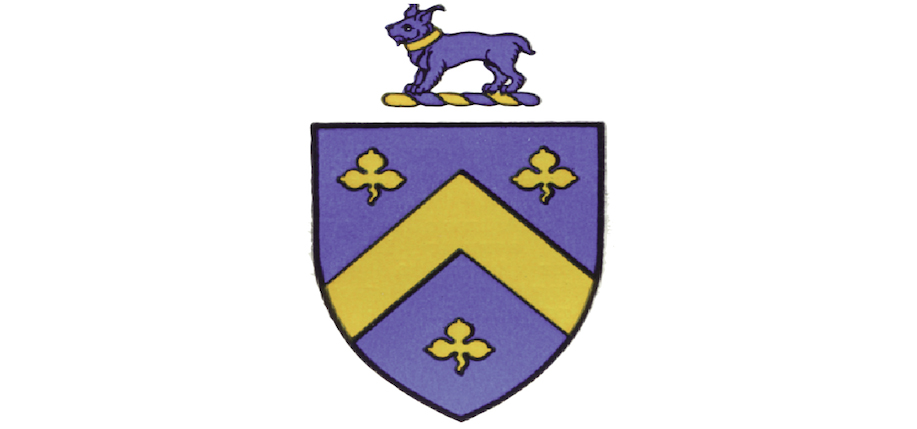One of the 100 most common surnames in Ireland, the Lynch name derives from several independent clans who inhabited just about everywhere from Ulster to Cork. The most notorious of the Irish Lynches, though not the largest clan, comes from the Norman de Lench, who were the most powerful of the 14 “Tribes of Galway,” Norman clans who ruled the medieval city. These Lynches were an important, landowning, merchant family among the Tribes who maintained loyalty to the British crown in the western outpost. Today, Lynch Castle still stands in Galway, now, appropriately, a bank.
In 1485, Peirce Lynch was elected the first mayor of Galway beginning a 170-year reign of the Lynch family in the city. But their influence extends even farther back. Peirce’s grandfather Edmond was Sovereign of Galway in 1434, and the family’s earliest known ancestor, Thomas de Lynch, was provost of Galway in 1274. Their influence ended in 1654 when the English barred Catholics from holding public office. Indeed, no Lynch would hold the mayoral office until 1989, when Angela Lynch (d. 2007) was elected to the position.
But by far the best remembered of the numerous Galway Lynch mayors was James Lynch fitz Stephen, who was elected in 1493. Soon afterwards he visited Spain and returned with a young man named Gomez, the son of his Spanish host. Lynch’s son Walter became friends with Gomez but he killed him one night in a jealous rage over a local girl. Despite protestations from the citizens of the city, James Lynch, who was also the magistrate, felt compelled to distribute justice evenly. After spending the night in jail comforting his son, he took him to his own house next door and hanged him from an upstairs window. Justice was served but Lynch never got over the incident and became a recluse.
Of the many Gaelic origins of the Lynch name, the most common derives from the Irish O’Loinseach, related to the Irish word for “mariner.” Unsurprisingly, a number of Lynches have made their living as seamen and explorers.
The first two of these Lynch marines were brothers: Henry Blosse Lynch and Thomas Kerr Lynch. Henry Blosse Lynch (1807 – 1873) joined the Royal Indian Navy at the age of 16 and quickly rose in ranks owing to his fluency in Persian and Arabic languages, eventually becoming the official interpreter for the Gulf Squadron. He made significant contributions to the exploration and surveying of the Euphrates and Tigris Rivers, as well as the greater Mesopotamia region, establishing with his brother Thomas a postal route between Baghdad and Damascus. His brother, Thomas Kerr Lynch (1818 – 1891), was also a prolific explorer of the Near East and was responsible for the first steamer services between Baghdad and India. He also extensively traveled in Persia, building relationships with the Shah, eventually serving as Consul-General for Persia in London.
Halfway around the world, another Lynch sailor was making a name for himself as the “Red Prince.” Patricio Lynch (1825 – 1886) was born in Chile and served in the British Royal Navy and later became a Rear Admiral in the Chilean Navy, where he achieved heroic status as a liberator of Chinese slave laborers in Peru during the South American War of the Pacific. His great-grandfather, Patrick Lynch, had emigrated from Galway to Buenos Aires, another of whose descendants was Ernesto Guevara Lynch, the father of Argentine revolutionary Che Guevara (1928 – 1967).
Another South American Lynch connection is the Cork-born French courtesan Eliza Lynch (1835 – 1886), who eventually became the partner of Francisco Solano López, president of Paraguay (see page 70).
In the U.S. too there’s a naval Lynch of note: William F. Lynch (1801 – 1865), a Virginian who served both in the U.S. Navy and the Confederate Navy when the Civil War began. While in the U.S. Navy he led the American expedition to the River Jordan and the Dead Sea, and attempted to explore the interior of west Africa for purposes of colonization, but was unable to do so because of illness (for which we should probably be thankful).
One of the oldest American Lynches was Thomas Lynch (1727 – 1776), a South Carolina statesman and member of the Continental Congress. When he died, his son, Thomas Lynch Jr. (1747 – 1779) took his place and signed the Declaration of Independence. The last Southern gentleman Lynch of significance is Charles Lynch (1739 – 1796), who established Lynch courts during the Revolutionary War, and from which we have the term “lynching,” originally a more general term to refer to extra-judicial justice.
Among contemporary Irish-born Lynches, there is Jack Lynch (1917 – 1999) the former Taoiseach of Ireland, and star Gaelic football and Hurley player, and Evanna Lynch (b. 1991), the actress best known for her role as Luna Lovegood in the Harry Potter film series.
Other Lynches in entertainlemt, born in the U.S., are David Lynch (b. 1946), the cockatoo-coiffed surrealist director famed for Eraserhead, Mulholland Drive, and “Twin Peaks;” Jane Lynch (b. 1960) of “Glee” and LGBTQ activism fame; and Thomas Lynch (b. 1948), the poet, critic, and undertaker.
The Lynches also made a name for themselves in the financial industry. Born in Baltimore, MD, Edmund Calvert Lynch (May 19, 1885 – May 12, 1938) and his friend, Charles E. Merrill, formed the famous Wall Street company Merrill Lynch in 1915. One of the best-known U.S.-born Lynches is Peter Lynch (1944), the stockbroker who managed the Fidelity Magellan Fund from 1977 to 1990 and grew it from $20 million to $20 billion. Lynch was born in Newton, MA, and is a graduate of Boston College. And last, but not least, is another Lynch who has achieved great success in the financial industry, Kathleen Lynch of UBS, featured on this issue’s cover.


We’re the Lynchs of Lynchburg , Virginia descendents of the Galway Lynchs?
I am dependent from George Lynch he is the Lynch that founded Lynchburg Virginia